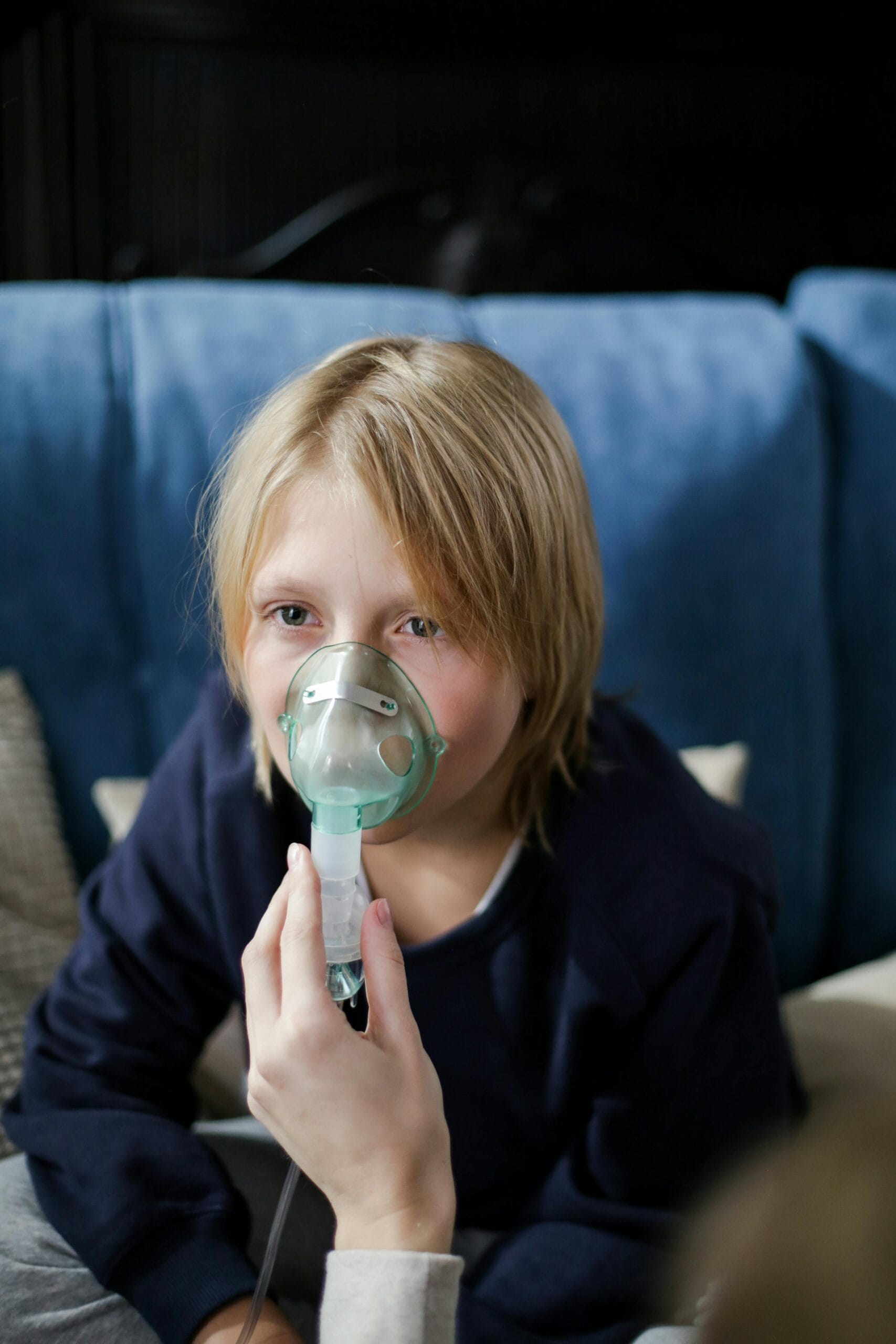
Hormone Imbalance Affects Bronchiolitis Connection Of Hormonal Cycle And Viral Respiratory Illness In Girl
There are a hidden Connection Of Hormonal Cycle And Viral Respiratory Illness In Girl present so Hormones play a crucial role in regulating various functions within the human body, including the immune system and respiratory health. In girls and women, hormonal fluctuations throughout different life stages—such as puberty, pregnancy, and menopause—can affect how the body responds to illnesses, including bronchiolitis. Although bronchiolitis is primarily a viral respiratory illness, emerging evidence suggests that hormonal imbalances may influence the severity of respiratory conditions.
This blog explores the intricate relationship between hormone imbalances in girls and women and their impact on bronchiolitis, highlighting the importance of maintaining a balanced hormone cycle to improve respiratory health. We will also look into the role of alternative therapies and self-care techniques to support both hormone regulation and respiratory function.
Bronchiolitis and Its Prevalence in Women and Girls
What is Bronchiolitis?
Bronchiolitis is a respiratory condition that affects the smallest airways in the lungs, known as bronchioles. Inflammation and mucus build-up cause the bronchioles to become blocked, leading to difficulty breathing. The condition is typically triggered by viral infections such as Respiratory Syncytial Virus (RSV), which is highly contagious and most common in infants and young children.
Bronchiolitis in Girls and Women
While bronchiolitis is generally considered a childhood illness, its effects on adolescent girls and older women cannot be overlooked. The presence of pre-existing respiratory conditions like asthma, the immune system’s response to infections, and hormonal fluctuations can influence the severity of bronchiolitis in females. Hormonal imbalances, whether due to puberty, pregnancy, or menopause, may exacerbate symptoms or complicate recovery.
How Hormone Imbalance Affects Bronchiolitis

The Role of Hormones in the Immune System
Hormones such as estrogen, progesterone, and cortisol significantly affect how the immune system functions. In women, the levels of these hormones fluctuate throughout the menstrual cycle, during pregnancy, and in menopause. These fluctuations can either enhance or suppress immune responses, making the body more or less susceptible to respiratory infections like bronchiolitis.
- Estrogen: Estrogen is known for its anti-inflammatory properties. In normal levels, it helps regulate the immune system, improving the body’s ability to fight off infections. However, estrogen imbalances (either too high or too low) can lead to either heightened inflammation or a weakened immune response, both of which could aggravate respiratory issues such as bronchiolitis.
- Progesterone: Progesterone levels rise during the luteal phase of the menstrual cycle and pregnancy. While this hormone has immunosuppressive properties to protect pregnancies from maternal immune attacks, it may also suppress the body’s ability to fight respiratory infections. High levels of progesterone could slow down the recovery from bronchiolitis.
- Cortisol: As the primary stress hormone, cortisol is responsible for managing the body’s inflammatory response. Chronic stress and high cortisol levels may weaken immune function, increase inflammation, and worsen respiratory conditions, including bronchiolitis.
Hormone Imbalances in Adolescents and Women
- Puberty and Adolescence: Girls undergo significant hormonal changes during puberty, which can influence their immune responses. Estrogen and progesterone levels fluctuate as the body matures, and these hormonal changes may increase susceptibility to respiratory infections. Girls with hormone imbalances, such as those experiencing early or late puberty, may have a more pronounced response to respiratory infections like bronchiolitis.
- Pregnancy: Pregnancy introduces significant hormonal shifts, particularly elevated progesterone and estrogen levels. The rise in progesterone, while necessary for maintaining a pregnancy, can suppress the immune system, making women more vulnerable to respiratory infections. Bronchiolitis during pregnancy could be more severe due to a combination of immune suppression and changes in lung function that occur as the uterus expands and presses against the diaphragm.
- Menopause: Menopausal women experience a drop in estrogen levels, which can increase inflammation and negatively impact lung health. The decrease in estrogen may also reduce the body’s natural ability to fight infections. Post-menopausal women may be at higher risk for respiratory conditions like bronchiolitis due to reduced lung function and immune system changes.
The Importance of a Normal Hormonal Cycle for Respiratory Health
Maintaining a balanced hormone cycle is critical for overall health, including respiratory health. A healthy hormonal cycle helps regulate the immune system, reducing the likelihood of severe respiratory infections and aiding in faster recovery from illnesses like bronchiolitis. Let’s explore why hormone balance is crucial for preventing and managing bronchiolitis in women and girls.
- Regulated Immune Response
A balanced hormonal cycle ensures that the immune system functions optimally. Estrogen’s anti-inflammatory properties can help protect the lungs from excessive inflammation caused by viral infections like bronchiolitis. When hormone levels are stable, the immune system is better equipped to fight off respiratory viruses and reduce the risk of complications.
- Reduced Inflammation
Hormonal imbalances, especially involving estrogen and progesterone, can increase inflammation in the body. Chronic inflammation in the lungs can worsen symptoms of bronchiolitis, such as coughing, wheezing, and shortness of breath. A stable hormone cycle minimizes the risk of chronic inflammation, thereby reducing the severity of respiratory conditions.
- Improved Lung Function
Estrogen plays a role in maintaining lung function, and its decline in menopause can lead to decreased respiratory efficiency. By maintaining normal estrogen levels, women can support better lung function and reduce the risk of respiratory infections. This is particularly important for women with pre-existing conditions like asthma, which can be exacerbated by bronchiolitis.
Alternative Medicine and Self-Care Techniques for Hormonal Balance and Bronchiolitis Management
While conventional treatments like bronchodilators and oxygen therapy are essential for treating bronchiolitis, alternative medicine and self-care techniques can help regulate hormone levels and improve respiratory health. Let’s explore some effective methods to achieve hormonal balance and support the respiratory system.
- Herbal Remedies for Hormonal Balance
Several herbs have been traditionally used to regulate hormones and support respiratory health. Some of the most effective herbs for balancing hormones and managing bronchiolitis include:
- Vitex (Chasteberry): Vitex is commonly used to balance estrogen and progesterone levels, making it beneficial for women experiencing hormone imbalances due to menstruation or menopause.
- Ashwagandha: An adaptogenic herb, ashwagandha helps regulate cortisol levels and reduce stress-induced hormone imbalances. Lowering cortisol can improve immune function and reduce the severity of respiratory infections like bronchiolitis.
- Black Cohosh: Used to relieve menopausal symptoms, black cohosh may also support estrogen balance and improve respiratory health by reducing inflammation.

- Yoga and Meditation
Yoga and meditation are excellent for promoting hormonal balance and enhancing respiratory function. Specific yoga poses can stimulate the endocrine system and help balance hormones, while breathing exercises (pranayama) improve lung function and respiratory health. Yoga also reduces stress, which is crucial for managing cortisol levels and supporting immune health.
- Nadi Shodhana (Alternate Nostril Breathing): This breathing exercise helps balance energy and reduce stress, promoting hormonal equilibrium and improving lung function.
- Ujjayi Breathing: Also known as “victorious breath,” Ujjayi breathing helps calm the nervous system, reduce cortisol levels, and improve lung capacity, making it beneficial for managing bronchiolitis symptoms.

- Nutritional Support
Diet plays a vital role in both hormone regulation and respiratory health. A nutrient-rich diet can help balance estrogen and progesterone levels, support the immune system, and reduce inflammation.
- Omega-3 Fatty Acids: Found in fatty fish like salmon, omega-3s have anti-inflammatory properties that can help reduce lung inflammation and improve respiratory function.
- Cruciferous Vegetables: Vegetables like broccoli, cauliflower, and kale contain compounds that help detoxify excess estrogen from the body, promoting hormonal balance.
- Antioxidant-Rich Foods: Foods high in antioxidants, such as berries and leafy greens, can help reduce oxidative stress and inflammation in the lungs, improving recovery from bronchiolitis.

- Acupuncture
Acupuncture, a traditional Chinese medicine technique, involves the insertion of fine needles into specific points on the body to balance energy (Qi) and improve health. Acupuncture has been shown to regulate hormone levels, reduce stress, and improve respiratory function, making it an excellent complementary therapy for women dealing with hormone imbalances and bronchiolitis.
Conclusion
Hormone imbalances in girls and women can significantly affect their susceptibility to and recovery from respiratory infections like bronchiolitis. The role of hormones in regulating immune function, inflammation, and lung health makes maintaining a balanced hormonal cycle essential for preventing severe respiratory conditions and ensuring overall well-being.
By incorporating alternative medicine and self-care techniques, such as herbal remedies, yoga, acupuncture, and proper nutrition, girls and women can achieve hormonal balance and improve their respiratory health. Understanding the complex relationship between hormones and bronchiolitis enables a more holistic approach to treatment, offering better outcomes for women at different life stages.
References
- World Health Organization (WHO). “Hormonal Changes and Respiratory Health in Women.” Available at: WHO
- National Institutes of Health (NIH). “Hormone Imbalance and Its Impact on Respiratory Conditions.” Available at: NIH
FAQ
1. How do hormone imbalances impact bronchiolitis in girls and women?
Hormonal fluctuations in estrogen, progesterone, and cortisol can affect the immune system’s response to infections like bronchiolitis. Imbalances in these hormones may either weaken the immune response or increase inflammation, leading to more severe symptoms of bronchiolitis.
3. Can pregnancy or menopause worsen bronchiolitis?
2. Why is a balanced hormone cycle important for respiratory health?
A balanced hormone cycle regulates the immune system, reduces inflammation, and supports lung function. Stable levels of estrogen and progesterone help the body manage respiratory infections, preventing severe cases of bronchiolitis and aiding faster recovery.
Yes, during pregnancy, elevated progesterone levels may suppress the immune system, making women more vulnerable to respiratory infections like bronchiolitis. Similarly, the decline in estrogen during menopause can increase inflammation and reduce lung function, increasing the risk of respiratory conditions.
4. What alternative therapies can help regulate hormones and manage bronchiolitis?
Herbal remedies, such as vitex and ashwagandha, along with practices like yoga, meditation, and acupuncture, can support hormone balance and improve respiratory function. Nutritional support, including omega-3 fatty acids and antioxidant-rich foods, can also aid in reducing inflammation and improving lung health.
